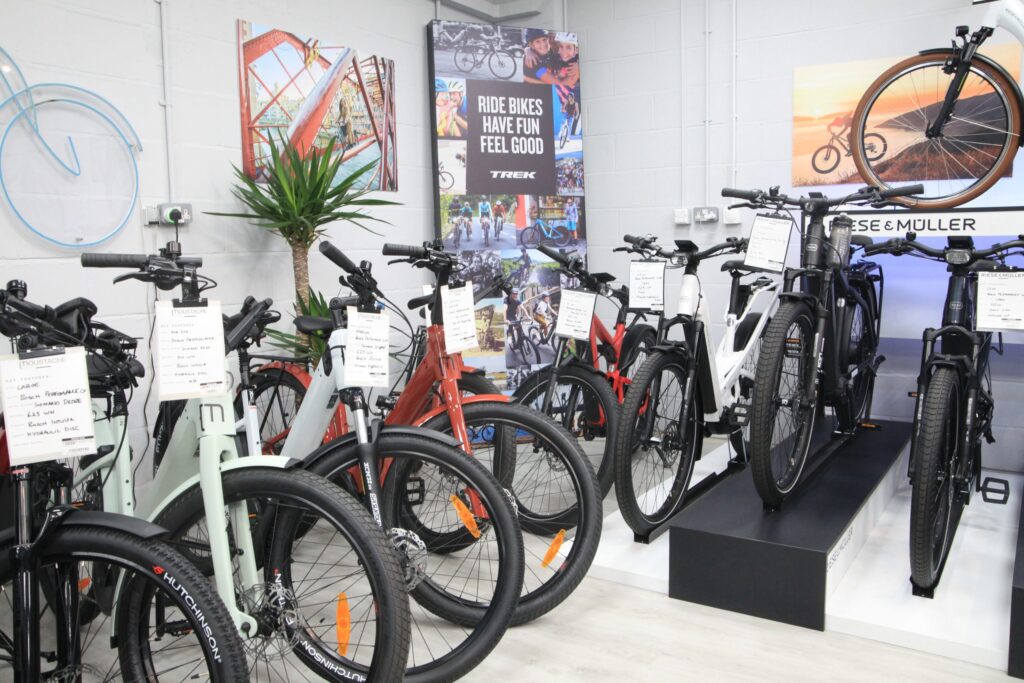
Introduction
In recent years, there has been a notable shift in consumer preferences toward sustainable and eco-friendly modes of transportation. Among the frontrunners in this movement are electric bikes, also known as e-bikes. Electric bike sales have witnessed a remarkable surge globally, as individuals seek efficient, cost-effective, and environmentally friendly alternatives to traditional commuting methods. In this article, we will delve into the factors driving the rise of electric bike sales and explore the trends shaping the market.
The Green Revolution
Sustainable Commuting
With environmental concerns taking center stage, electric bikes have emerged as a greener alternative to conventional vehicles. Commuters are increasingly opting for e-bikes as a means to reduce their carbon footprint and contribute to the global effort to combat climate change. The electric propulsion systems of these bikes make them an attractive option for eco-conscious consumers seeking a cleaner mode of transportation.
Government Initiatives
Supportive government policies and incentives have played a pivotal role in boosting electric bike sales. Many countries are offering subsidies, tax credits, and other incentives to promote the adoption of electric vehicles, including e-bikes. These measures not only make electric bikes more affordable but also encourage consumers to make the switch to sustainable transportation.
The Tech Advantage
Advanced Battery Technology
One of the key factors driving the popularity of electric bikes is the advancement in battery technology. Lithium-ion batteries, in particular, have undergone significant improvements, providing higher energy density, longer range, and faster charging times. As a result, modern e-bikes can cover greater distances on a single charge, making them a viable option for both short commutes and longer journeys.
Integration of Smart Features
Electric bikes are not just about the motor – they are becoming increasingly smart. Integration of GPS, connectivity features, and smartphone apps has enhanced the overall riding experience. Riders can track their routes, monitor battery life, and even control certain functions of their e-bikes through dedicated mobile applications. This technological integration adds an element of convenience and sophistication, attracting tech-savvy consumers.
Economic Considerations
Cost Savings
While the initial purchase price of an electric bike may be higher than that of a traditional bicycle, the long-term cost savings are substantial. E-bikes are highly energy-efficient and cost significantly less to operate compared to traditional vehicles. With rising fuel prices, consumers are drawn to the economic benefits of electric bikes, making them an attractive investment over time.
Low Maintenance
Electric bikes boast simpler mechanical systems than internal combustion engine vehicles. With fewer moving parts and no need for complex maintenance routines, e-bikes offer a cost-effective and hassle-free ownership experience. This aspect appeals to consumers looking for a reliable and low-maintenance mode of transportation.
Changing Consumer Lifestyles
Health and Fitness
Contrary to the misconception that electric bikes are solely for those seeking a leisurely ride, they cater to a diverse audience. Commuters are increasingly recognizing the health benefits of using e-bikes for daily transportation. By providing adjustable levels of assistance, riders can choose to pedal more or less, striking a balance between physical activity and the convenience of electric propulsion.
Urbanization Trends
Rapid urbanization has led to increased traffic congestion and a growing need for sustainable urban mobility solutions. Electric bikes, with their ability to navigate through traffic and access areas inaccessible to cars, are becoming a preferred mode of transportation in densely populated urban areas. The compact size and agility of e-bikes make them well-suited for the demands of modern city living.
Challenges and Future Prospects
Infrastructure Development
While electric bike sales are on the rise, the lack of adequate charging infrastructure remains a challenge. Governments and private entities need to invest in charging stations and facilities to support the growing fleet of electric bikes. Overcoming this hurdle will be crucial for the sustained growth of the electric bike market.
Regulatory Framework
As the popularity of electric bikes continues to soar, regulatory frameworks need to evolve to accommodate these new modes of transportation. Clear guidelines regarding safety standards, usage in bike lanes, and other pertinent issues will contribute to a harmonious integration of e-bikes into existing transportation ecosystems.
Conclusion
In conclusion, the surge in electric bike sales is indicative of a broader shift towards sustainable and eco-friendly transportation solutions. Factors such as environmental consciousness, technological advancements, economic considerations, and changing consumer lifestyles are propelling the electric bike market forward. As governments, manufacturers, and consumers collaborate to address challenges and embrace the benefits of e-bikes, it is evident that electric bikes are not merely a trend but a key player in the future of urban mobility.
Also Read: Electric Bike Reviews (Updated 2023)